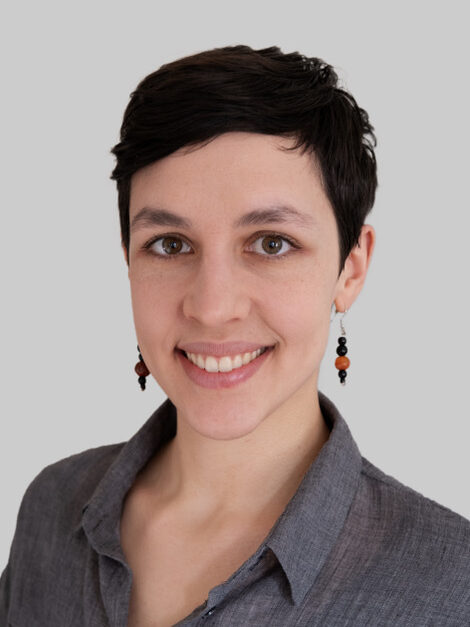
Published: Identity denial and well-being among bi- and pansexual individuals
Thöni, C., Eisner, L., & Hässler, T. (2022, August 8). Not straight enough, nor queer enough: Identity denial, stigmatization, and negative affect among bisexual and pansexual people. https://doi.org/10.17605/OSF.IO/SXKBN
People who are attracted to multiple genders, such as bisexual or pansexual people, report poorer mental health than people who are attracted to only one gender. One contributing factor could be the denial of their sexual orientation (i.e., identity denial). Plurisexual people experience discrimination from both the LGBTIQ+ community and heterosexual people. Distinguishing who identity denial comes from and how it is processed is central to understanding identity denial processes and informing future interventions to increase the mental health of bisexual and pansexual individuals.
Cynthia Thöni supervised by Tabea Hässler (University of Zurich) and Léïla Eisner (University of Lausanne)

Finished: Gendernauts in the Cistem: How Do Non-binary People in Switzerland Navigate in a Binary Social World?
This study examines how non-binary individuals experience and navigate minority stress within the mainly binary social environment of Switzerland. Findings from focus groups with 16 non-binary individuals and 14 social identity maps reveal three circles of social groups, differing in their closeness and importance: circle 1 (family, relationship partners, and friends), circle 2 (coworkers, members of LGBTIQA+ communities, and other acquaintances), circle 3 (people in public, media, the Swiss state and law, health care system). Participants particularly do not feel affirmed or supported by the social groups within the third circle–such as the Swiss public, state, media, and (mental) health system. Support is perceived mostly from groups within the first circle–such as partners, friends, and close family members– but also the second circle–such as some coworkers, or supervisors as well as LGBTIQA+ communities. Importantly, discrimination from social groups that are more central is perceived as particularly hurtful. Here, non-binary people put continued efforts into educating people about their identity, which was perceived as exhausting and frustrating. We conclude by providing mostly participant-generated recommendations for improving the inclusion of non-binary people in society, politics, and health care.
Loren Schaad, Léïla Eisner, Annika Wilhelmy, Johannes Ullrich, and Tabea Hässler (University of Zurich)

Finished: How discrimination affects the well-being of sexual minority members
The aim was to better understand the mechanisms whereby discrimination affects the well-being of sexual minority members. Differences in experiences of discrimination and well-being across different subgroups were examined, and a comprehensive overall model was examined, which took the factors internalized LGBTIQ+ negativity, connectedness to the LGBTIQ+ scene, social support and pride into account.
Patrizia Eicher supervised by Tabea Hässler (University of Zurich) and Léïla Eisner (University of Lausanne)

Finished: Changes in well-being and perceived discrimination among LGBTIQ+ people
Using econometric methods such as the Difference-in-Differences approach, we try to assess how well-being and perceived discrimination among LGBTIQ+ people have changed between 2020 and 2021. People’s coming-out is not a one-time event but a continuous process. How does it affect LGBTIQ+ people’s well-being when they out themselves to more people over time? This is the focus of Alexandre’s master’s thesis. Abigaël, in turn, focuses on recent legal changes. In 2020, Swiss people voted in favor of extending the anti-discrimination law to also include sexual orientation. Abigaël examines how this vote affects the level of discrimination that LGBTIQ+ people experience.
Alexandre Dey and Abigaël Lecomte supervised by Martin Huber (University of Fribourg), Léïla Eisner (Universities of Zurich & Lausanne), and Tabea Hässler (University of Zurich)
